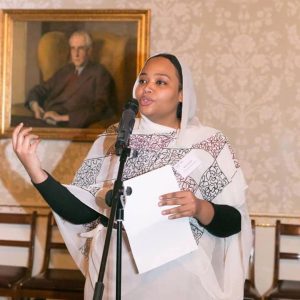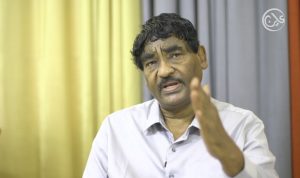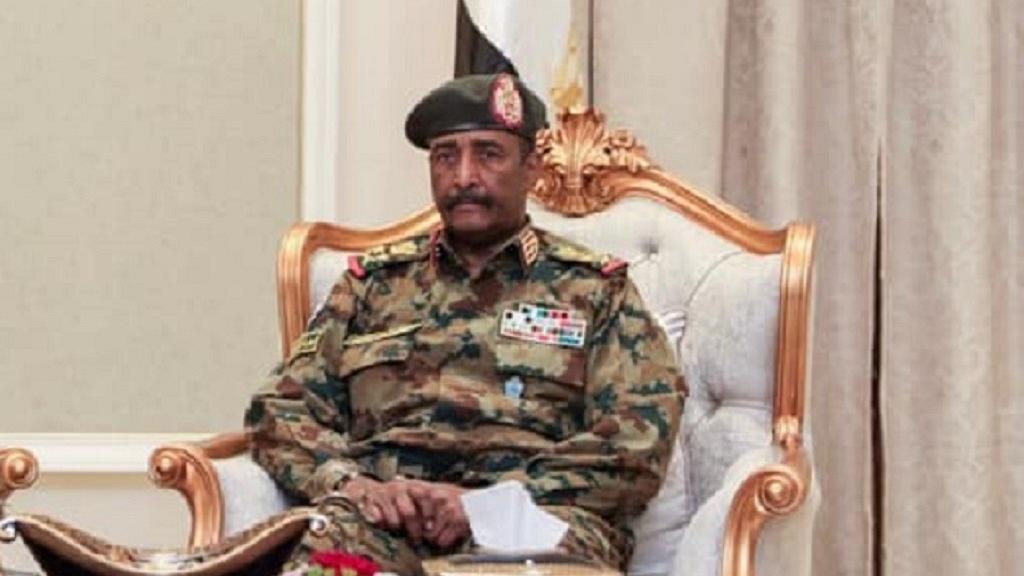New Council debated as Burhan’s proposal rejected
14 December 2020
A second attempt to develop the “Transitional Partners Council” took place on Sunday, designed to coordinate efforts and resolve disputes between Sudan’s diverse government bodies. The meeting, attended by members of the umbrella opposition group –the Forces for Freedom and Change (FFC), the military and the Juba Peace Agreement signatories –the Sudan Revolutionary Front (SRF)– is still debating the role of the Prime Minister within the new proposed body, according to news reports.
The meeting follows the previous, widely rejected proposal by the Head of Sovereign Council, Lt. Gen. Abdel Fattah El Burhan that many feared would allow the new Council sweeping powers, according to government officials and civil society actors.
There is one thing all government agencies in Sudan can agree on is their inability to agree.
The Transitional Partners Council was meant to address these internal divisions within the disparate leadership.

“We have been talking and debating as a government about lifting fuel subsidies for almost a year without understanding the situation,” a frustrated Youth and Social Welfare Minister Wala’a Essam said in an interview with the BBC, citing lack of consensus within the government.
The announcement made by the Sovereign Council Head to form a Council to settle differences within Sudan’s disparate government earlier this month received a variety of reactions. The proposed body involved six military members – including Abdel Rahim Daglo, the brother to the Deputy Sovereign Council and militia leader, Mohamed Hamdan Daglo (‘Himmedti’), the prime minister, 13 members from the FFC and seven SRF members, in addition to two seats reserved for the eastern states.
“The Transition Partners Council is to lead the transitional period in a manner that serves the interests of Sudan, settle disagreements in views between the different parties, and assemble the necessary support for the success of the transitional period,” a statement by the sovereign council reads.
Fears and Reservations
But fears and opposition met the news of Burhan’s proposed council by many who saw it as an attempt to hijack the revolution once again. The Sudan Professional’s Association – the union that played the key role in Sudan’s revolution — along with other civil society groups called for civic action against the council, claiming it is an attempted coup by the military. Many politicians have shown reservations, including Prime Minister Abdalla Hamdok, according to news reports.
“The concept behind the Council was good, but it left too many powers in the hands of the few,” said the Minister of Foreign Relations, Omar Ismail.
The council would provide the executive powers beyond the levels of the Sovereign Council, according to Aisha Mousa, a Sovereign Council member. Mousa said the initiative amounted to a coup, an attempt to replace the upcoming legislative assembly.
The Council of Ministers, through its official spokesman Faisal Mohamed Salih, said they disagreed with the way the former Transitional Partners Council was proposed and called all stakeholders to review the formation taking into consideration its constitutionality.
Lack of Transparency
But Burhan said in a statement to the state news agency that the idea of establishing the Transitional Partners Council came at the initiative of the FFC and was approved in a joint session between the Sovereignty Council and the Council of Ministers. He reportedly stated that the council is [designed] to remove disagreements between the partners of the transitional period, and does not have any relation to the duties of the Sovereignty Council and the Council of Ministers, nor interferes in their work. He also pledged that the Council does not cancel the role of the legislative council regarding supervision and legislation.

FFC leader, Ibrahim al-Sheikh, told Ayin that all the confusion happened because of the lack of public engagement in decision making and the absence of adequate media coverage. He thinks that the idea of the council is a good one in general but the implementation needs amendments. “Within the talks – and with consideration to historical experiences – there was an obvious fogginess regarding the authorities – which shows in Burhan’s meeting with Israelis officials without the Council of Ministers’ knowledge and other examples – so the FFC wanted to initiate a body that works with all the bodies to handle things,” he said.
He added that the FFC held a meeting with the premier to form a committee to review this matter and talks are ongoing to reach an initial agreement regarding the council and its goals, authority and scope of work.
A good idea, badly promoted
Abdullah Rizg, a political analyst told Ayin that the Council came because of the gap left by the lack of a legislative assembly that was meant to observe the executive authorities. “With the absence of a parliament, there was interference and overriding of powers between the Sovereign Council and Council of Ministers,” he said. “The Sovereign Council turned into an executive body rather than its original honorary role stated by the constitutional document.”
The concept behind the Transitional Partners Council is of merit, Rizg added, as it allows the co-signers to the peace agreement to participate in the transitional process. “But the Transitional Partners Council should not be considered a replacement for the parliament and its role must not surpass coordination between the partners of the transitional government.” The formation of the proposed Council cannot simply emanate from an announcement from the Sovereign Council leader but should be preceded by public talks and better outreach to the Sudanese people, he added.
“People are afraid that their revolution will be stolen – if not already – and this is a reflection of the works of the government and how they don’t engage people and media in their decisions. The news raised many doubts and worries until things were later clarified,” he said.


